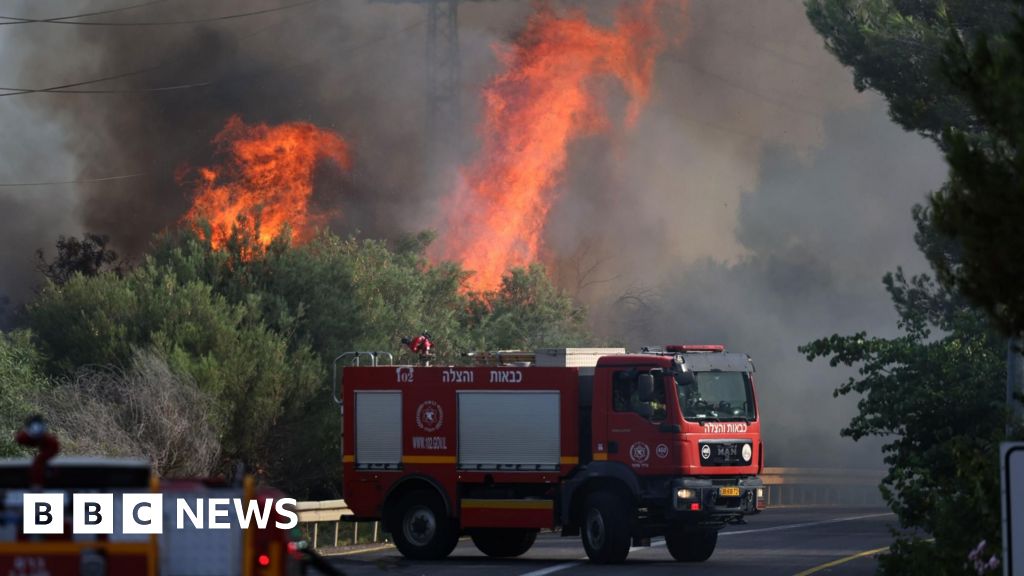The Lebanese armed group Hezbollah fired more than 200 rockets and attack drones into northern Israel in response to the killing of one of its top commanders.
The Israeli military said an officer was killed in the barrage attack, which caused multiple fires.
The military also said it had targeted Hezbollah “military buildings” and other targets in southern Lebanon in response.
Lebanese media reported that an Israeli drone strike killed one person in the town of Houla.
The latest attack, which follows 100 rockets fired on Wednesday afternoon, is one of the largest so far in nine months of cross-border violence that has stoked fears of an all-out war.
Hezbollah commander Mohammad Nima al-Nasser was killed in an Israeli airstrike near the southern Lebanese city of Tyre, one of the group’s most senior figures killed in the conflict.
The Israeli military said Nasser commanded Hezbollah’s Aziz Forces, which fire rockets from southwestern Lebanon, and accused him of directing “a large number of terrorist attacks”.
It also described him as a “rival” to Taleb Sami Abdullah, the commander of another unit who was assassinated last month. Abdullah’s killing prompted Hezbollah to fire more than 200 rockets and missiles into northern Israel in one day.
Since the war between Israel and Hamas broke out in Gaza on October 7, there have been almost daily exchanges of fire on the border between Israel and Lebanon.
Hezbollah said it was taking action to support the Palestinian group, which is also backed by Iran. Both groups are listed as terrorist organizations by Israel, Britain and other countries.
So far, more than 400 people have been reported dead in Lebanon, the vast majority of them Hezbollah fighters, and 25 people have been killed in Israel, mostly soldiers.
Israeli Prime Minister Benjamin Netanyahu has pledged to restore security in northern Israel.
“During the hard-fought campaign against Lebanon, we established a principle – whoever harms us is doomed. We are making this a reality in practice,” he said on Thursday.
Hostilities have also displaced tens of thousands of people from border communities in northern Israel and southern Lebanon.
“Response to the assassination of the respected leader Haji Abu Nima [Nasser]… It started last night and very quickly,” senior Hezbollah official Hashim Safiedine warned at Nasser’s funeral in Beirut on Thursday.
“The series will continue to target new locations where enemies don’t expect to be hit.”
UNIFIL spokesman for the United Nations peacekeeping force in Lebanon said exchanges were now reaching both sides of the border and called on Israel and Hezbollah to exercise restraint.
“We are very concerned… because if there is a misunderstanding, any communication, any incident could escalate into something bigger,” Kandice Ardiel told the BBC.
There have been a series of diplomatic efforts to ease tensions in recent weeks, with the United Nations and the United States warning that a war could have catastrophic consequences and could draw Iran and other allies into it.
Israeli officials have repeatedly warned that they are ready to launch war if diplomacy fails. Defense Minister Yoav Galant said on Wednesday that the military would soon be ready “to take any action needed in Lebanon or to reach an arrangement from a position of strength”.
Hezbollah, seen as a powerful rival of Hamas, has said it does not want an all-out war with Israel and will abide by a ceasefire in Lebanon between Israel and Hamas in Gaza. But it also warned Israel that if war broke out it would fight “without rules.”

